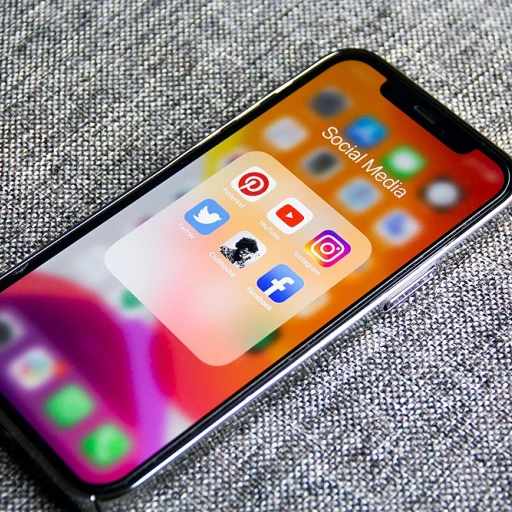
The Role of Artificial Intelligence in SEO
Embracing AI's Influence in SEO Strategies
Artificial Intelligence has rapidly infiltrated the realm of search engine optimization (SEO), offering unparalleled advantages to brands. Its cutting-edge capabilities equip marketers with smarter tools, transforming traditional strategies into highly efficient campaigns that cater significantly to the target audience. For businesses keen on optimizing their digital presence, understanding AI's contribution to SEO can pave the way for magnetic reach and enhanced engagement. Unpacking AI in SEO, it's evident that the technology breaks down complex data into actionable insights. It acts as a bridge between marketers and vast segments of online users, offering personalized experiences tailored to the individual's preferences. As AI continues to evolve, its applications in segmenting audiences, enhancing keywords, and evaluating user behavior in real-time become indispensable for boosting a brand's visibility on search engines. Being part of digital marketing strategies, AI enhances influencer marketing efforts by optimizing influencer selection. By filtering social media influencers who possess the desired audience relevance and reach, AI-driven tools simplify campaigns to resonate more effectively with followers. The synergy between SEO and influencer marketing creates a robust strategy that not only amplifies brand content but also escalates the engagement rate and creates long-term brand loyalty. Moreover, AI's prowess extends into content generation, where it assists brands in content optimization. Through predictive analytics, content creation is no longer a shot in the dark but a guided strategy that takes into account SEO best practices, ensuring that brand messages reach and engage the right audience. As businesses embrace the inevitable evolution brought by AI, seamless integration into marketing strategies is not just an option. It's a necessity. From curating influencer content that meets campaign goals to adjusting marketing influencers' resonance with audiences, AI promises a future where efficiency meets precision, setting new benchmarks in SEO and influencer marketing.Influencer Marketing: The Three R's
Decoding the Three R's of Influencer Marketing
In the dynamic landscape of digital marketing, influencer marketing has emerged as a pivotal strategy for brands seeking to increase their reach and resonate with target audiences. Understanding the Three R’s—Reach, Relevance, and Resonance—can guide businesses in designing effective marketing campaigns. Firstly, Reach refers to the number of people an influencer can connect with through their followers. When collaborating with influencers, brands should evaluate their follower count to ensure a broad dissemination of their content. Nano influencers and micro influencers might have fewer followers, but they often boast higher engagement rates, providing a more intimate connection with their audiences. Secondly, Relevance involves the alignment between an influencer's content and the brand's values and objectives. Brands must select influencers whose persona and content align with their marketing strategies. This ensures that the message delivered not only reaches the right audience but also resonates more deeply due to shared interests and values. Lastly, Resonance is about the potential level of engagement that influencer content can generate. Social media engagement, including likes, comments, and shares, are critical metrics. Evaluating resonance involves analyzing previous influencer campaigns to determine their effectiveness in sparking meaningful audience interaction. These three R’s form the core of influencer marketing strategy. As brands continue to harness the power of influential voices, leveraging AI-driven insights can enhance the selection process by ensuring that influencers chosen can maximize impact. AI tools can sift through vast amounts of social data to assess influencer performance, track past campaign results, and predict future engagement levels, thereby uplifting marketing strategies to new heights. Applying a thoughtful approach to these elements, along with incorporating AI solutions, positions brands to optimize their media marketing efforts and achieve sustainable, long-term success in a competitive digital space.AI-Driven Insights for Influencer Selection
Leveraging AI for Effective Influencer Selection
In the vast landscape of influencer marketing, selecting the right influencers can be a daunting task. AI-driven insights offer a powerful tool for businesses aiming to make informed decisions. By analyzing vast amounts of data, artificial intelligence can help marketers identify influencers who not only have a significant follower count but also align closely with the brand's values and objectives. One of the primary benefits of using AI in influencer selection is its ability to evaluate an influencer's reach, resonance, and relevance, the critical elements that drive campaign success. This automated evaluation considers an influencer's audience demographics, engagement rates, and the type of content they produce.- Audience Analysis: AI can analyze social media followers to assess whether an influencer's audience matches the target demographic. With tools that segment audiences based on parameters like location, age, and interests, brands can ensure their marketing strategies reach the intended audience effectively.
- Content Evaluation: Artificial intelligence assesses content resonance by examining past performance metrics, including likes, shares, and comments. This analysis helps determine the level of audience engagement and aids in forecasting the potential success of future collaborations.
- Influencer Categorization: AI can classify influencers into categories like nano influencers, micro influencers, and established influencers, allowing brands to choose partnerships based on specific campaign objectives and predicted engagement rates.
Optimizing Content with AI for Better SEO
Enhancing Content with the Help of AI
In today's rapidly evolving digital landscape, leveraging artificial intelligence is pivotal in optimizing content for superior performance in search engine optimization, audience engagement, and influencer marketing campaigns. AI empowers brands to create tailored, effective content by efficiently analyzing data collected across different platforms. First and foremost, AI aids in crafting content that speaks directly to the target audience. By analyzing patterns and trends in data, AI can identify the kind of content that resonates the most with potential followers. This makes it easier for brands to align their marketing strategy with the interests and behaviors of their audience, maximizing both reach and engagement. Secondly, AI streamlines the process of keyword optimization—essential for boosting search engine rankings. AI-driven tools can identify high-performing keywords relevant to the campaign or brand and suggest how they can be naturally integrated into content, whether for blogs, social media, or influencer posts. This ensures that the content not only reaches the right people but also maintains authenticity and relevance. Furthermore, AI technology provides insights into the performance analytics of influencer marketing. By understanding the ongoing effectiveness of content through AI analytics, brands can make informed adjustments to enhance reach resonance and ensure ongoing relevance to their audience. This data-driven approach enables businesses to refine their marketing strategies and better allocate resources across their campaigns. Lastly, AI can automate certain content creation aspects, such as generating captions or suggesting topics for influencer content, thus saving time and allowing for a more dynamic and responsive approach to content marketing. It supports brands in remaining agile while making strategic decisions that keep their marketing approach consistent and coherent. In summary, utilizing AI in content creation not only improves SEO outcomes but also sustains influencer campaigns by enhancing the overall marketing strategy, leaving a lasting impact on the target audience.Measuring Success: AI in Performance Analytics
Leveraging AI for Performance Analytics in Influencer Marketing
Artificial intelligence is radically transforming the landscape of influencer marketing by empowering brands with insightful performance analytics. In today's digital marketing world, understanding the impact and effectiveness of your marketing strategy is crucial. As brands increasingly rely on influencers to convey their message, leveraging AI-driven analytics becomes essential to measure success and optimize future campaigns.
One of the key advantages of AI in influencer marketing analytics is its ability to provide real-time data on audience engagement, reach, and resonance. By analyzing vast amounts of data from various social media platforms, AI can identify patterns and trends that might not be immediately apparent to human marketers. This enables brands to fine-tune their content and engagement strategies, boosting both relevance and reach.
AI tools can analyze engagement rates, influencers' followers, and their content's reception to provide insights into which marketing influencer resonates most effectively with the target audience. These insights are instrumental in creating more tailored and impactful marketing strategies, ensuring that the message isn't just reaching a broad audience but the right one for the brand.
Additionally, AI is adept at tracking the long-term performance of influencer campaigns. By continuously monitoring key performance indicators, businesses can assess the success of both current and past strategies. This ongoing analysis is crucial for optimizing both media marketing efforts and resource allocation, ultimately leading to enhanced brand presence and more meaningful audience connections.
For brands looking to harness the full potential of influencer marketing, understanding and utilizing AI-driven performance analytics can make the difference between average and outstanding campaign results. As AI technology continues to evolve, its role in measuring and enhancing influencer marketing effectiveness will only grow, providing brands with the competitive edge needed in an increasingly digital marketing landscape.
Future Trends: AI and Influencer Marketing
Trendwatch: The Symbiosis of AI and Influencer Marketing
As we look into the future, the integration of artificial intelligence within influencer marketing continues to evolve, bringing forth new dynamics and opportunities for brands to explore. This digital marketing landscape is ever-changing, and keeping abreast of current trends can provide a competitive edge.
The transformation brought by AI in this realm is apparent. AI-driven insights streamline the process of selecting marketing influencers by analyzing large sets of data to uncover valuable findings about resonance, relevance, and reach. This not only enhances content creation but also facilitates the identification of the right influencer content and marketing influencers who genuinely align with a brand's persona.
Additionally, optimizing content with AI is key for ensuring that it resonates and engages with the target audience. This is achieved through precise audience segmentation, allowing brands to tailor their marketing strategy to better fit the preferences and habits of their consumers. The result is an increase in engagement rates, higher brand visibility, and a closer connection to the audience.
In another compelling development, forward-thinking brands are leveraging AI to measure the success of their marketing campaigns. By utilizing performance analytics tools, AI enables businesses to monitor campaign metrics in real time, providing actionable insights on audience engagement, influencer reach, and campaign resonance. This real-time feedback loop is instrumental in refining ongoing strategies and achieving optimal outcomes.
Moreover, the scope of AI application continues to expand. From guiding influencer content to predicting social media trends, the role of AI in media marketing ensures that businesses remain pertinent in an increasingly competitive field. It's predicted that AI will empower marketers with more efficient tools to execute campaigns, offering them a strategic advantage.
In time, we can expect AI to drive the development of more nuanced and sophisticated marketing strategies. This will enable marketers to cultivate deeper connections with their audience and ultimately enrich long-term brand loyalty.












